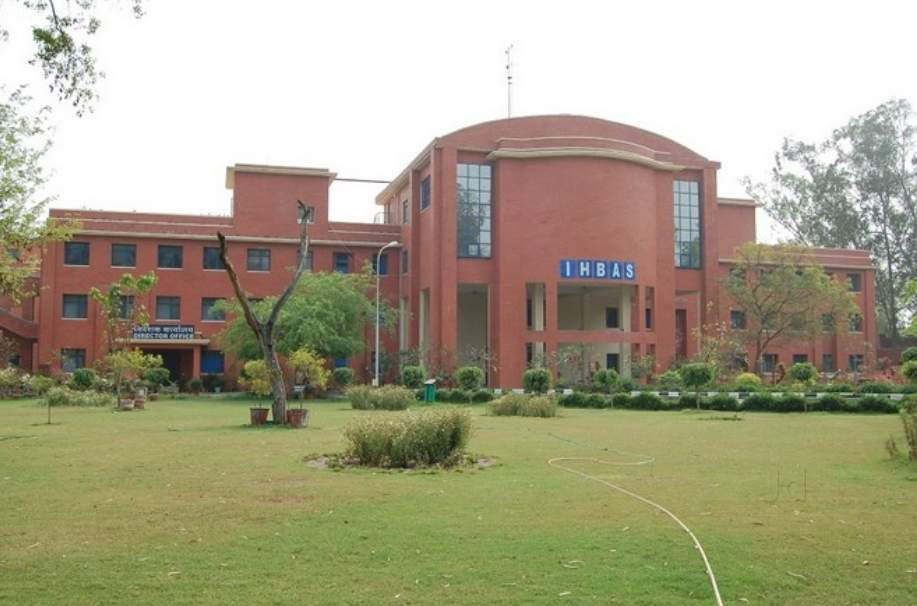
Institute of Human Behaviour and Allied Sciences, Delhi
Vision
|
The vision of Institute of Human Behaviour and Allied Sciences is to be one of the leaders in the country and in the world for promoting mental health, neurosciences, behavioural and allied sciences through multidisciplinary patient care in partnership with communities, developing future group of professionals and paraprofessional leaders through formal and semiformal training programmes and expanding scientific knowledge and its application through front-line research. Mission
|
DM - Neurology
Sure, let's talk about Neurology. Neurology is a medical specialty that focuses on the diagnosis and treatment of disorders affecting the nervous system. This includes the brain, spinal cord, peripheral nerves, and muscles. Neurologists are medical doctors who specialize in neurology. Here are some key aspects of neurology:
Neurological Disorders:
- Neurologists diagnose and treat a wide range of neurological disorders, including but not limited to:
- Stroke
- Epilepsy
- Multiple Sclerosis (MS)
- Parkinson's disease
- Alzheimer's disease
- Migraines and other headache disorders
- Neuropathies
- Movement disorders
- Neurogenetic disorders
- Neurologists diagnose and treat a wide range of neurological disorders, including but not limited to:
Neurological Examination:
- Neurologists conduct thorough neurological examinations to assess a patient's sensory function, motor skills, coordination, reflexes, and cognitive abilities.
Diagnostic Tools:
- Neuroimaging techniques such as MRI and CT scans help in visualizing the structure of the brain and spinal cord.
- Electrophysiological studies, like EEG (Electroencephalogram) and EMG (Electromyogram), assess electrical activity in the nervous system.
Stroke Management:
- Neurologists play a critical role in the management of stroke, both in acute care and long-term prevention.
Epilepsy Treatment:
- Managing epilepsy involves medication management, lifestyle adjustments, and, in some cases, surgical interventions.
Movement Disorders:
- Neurologists specialize in the diagnosis and treatment of movement disorders such as Parkinson's disease, essential tremor, and dystonia.
Headache and Pain Management:
- Addressing various types of headaches, including migraines, tension-type headaches, and cluster headaches, is a common part of neurology practice.
Memory and Cognitive Disorders:
- Neurologists evaluate and manage conditions affecting memory and cognitive function, including Alzheimer's disease and other forms of dementia.
Neuromuscular Disorders:
- Disorders affecting the muscles and peripheral nerves fall under the expertise of neurologists.
Multiple Sclerosis (MS) Management:
- Neurologists are involved in the diagnosis and long-term management of MS, an autoimmune disorder affecting the central nervous system.
Collaboration with Other Specialties:
- Neurologists often collaborate with other medical specialties, including neurosurgery, psychiatry, rheumatology, and rehabilitation medicine.
Research and Advancements:
- Neurologists contribute to ongoing research to better understand neurological conditions and develop new treatments.
Telemedicine:
- With advancements in technology, neurologists may use telemedicine for remote consultations, especially for follow-up appointments or managing chronic conditions.
If you have specific questions about neurology or if there's a particular aspect you'd like more information on, feel free to ask.
MD - Psychiatry
M. D. in Psychiatry is a Clinical Speciality course.
Doctor of Medicine in Psychiatry explores the major psychiatric syndromes like psychotic, mood and anxiety disorders, psychological effects of physical diseases, the doctor-patient relationship, human development, patient interviewing, and ethical issues in medicine. It is a three-year postgraduation course and can be pursued by any MBBS holders from a University recognized by Medical council of India. Most psychiatrists practice general psychiatry. Sub-specialization in Child and Adolescent Psychiatry, Addiction Medicine, and Geriatric psychiatry can be conducted after M. D. in Psychiatry.
- Log in to post comments
- 42 views
